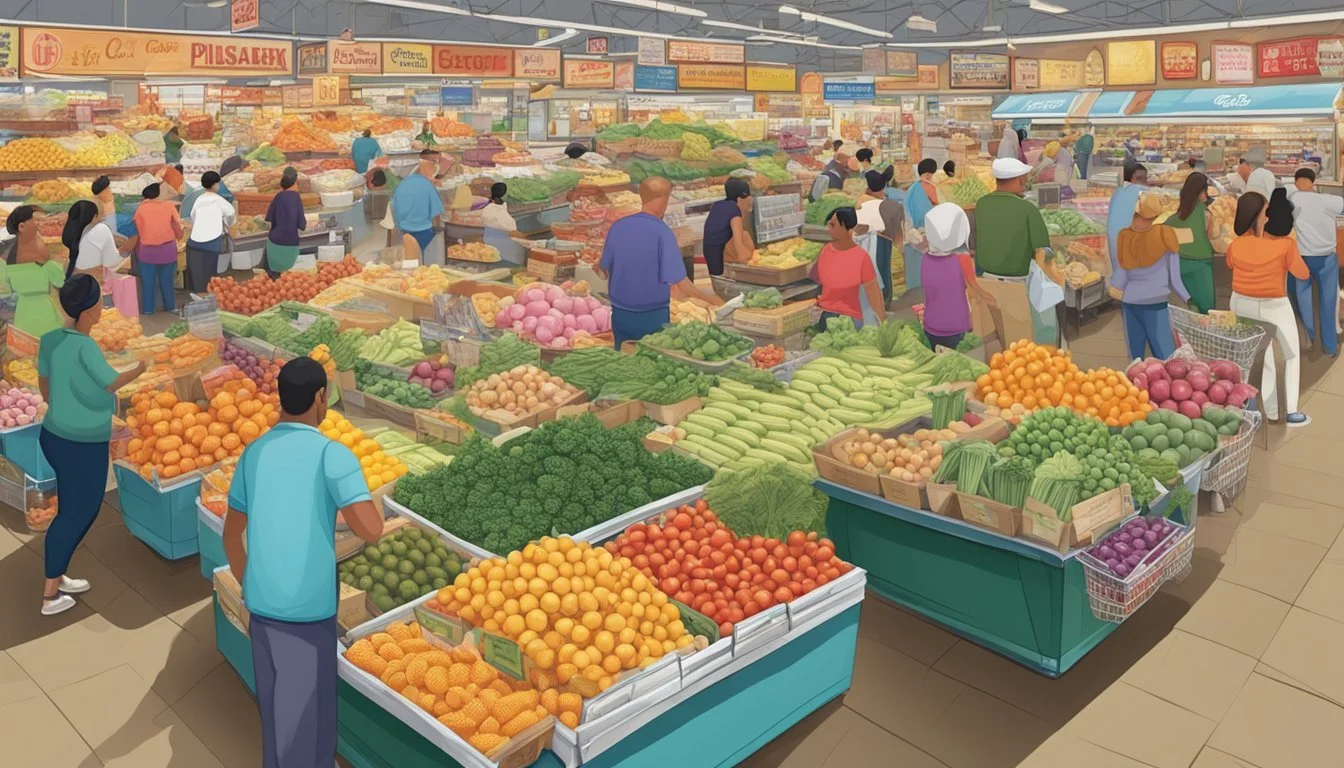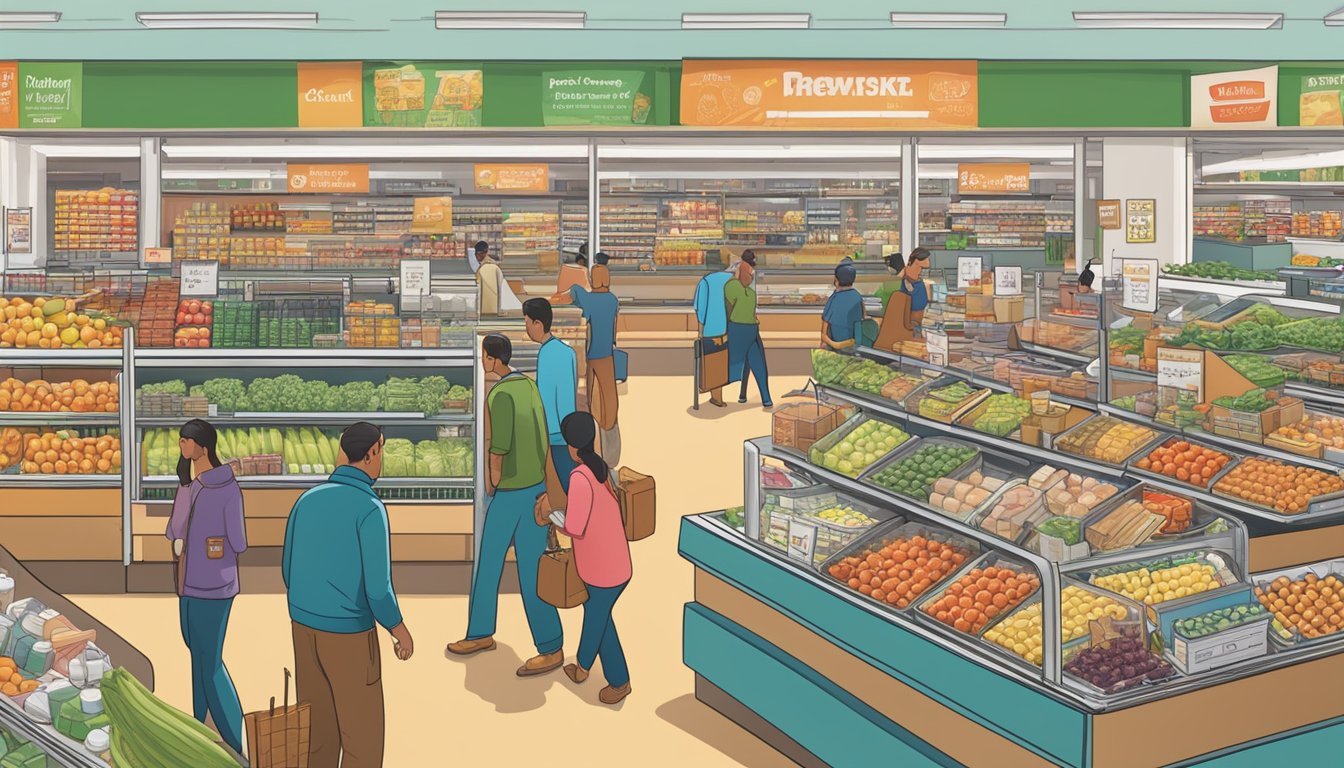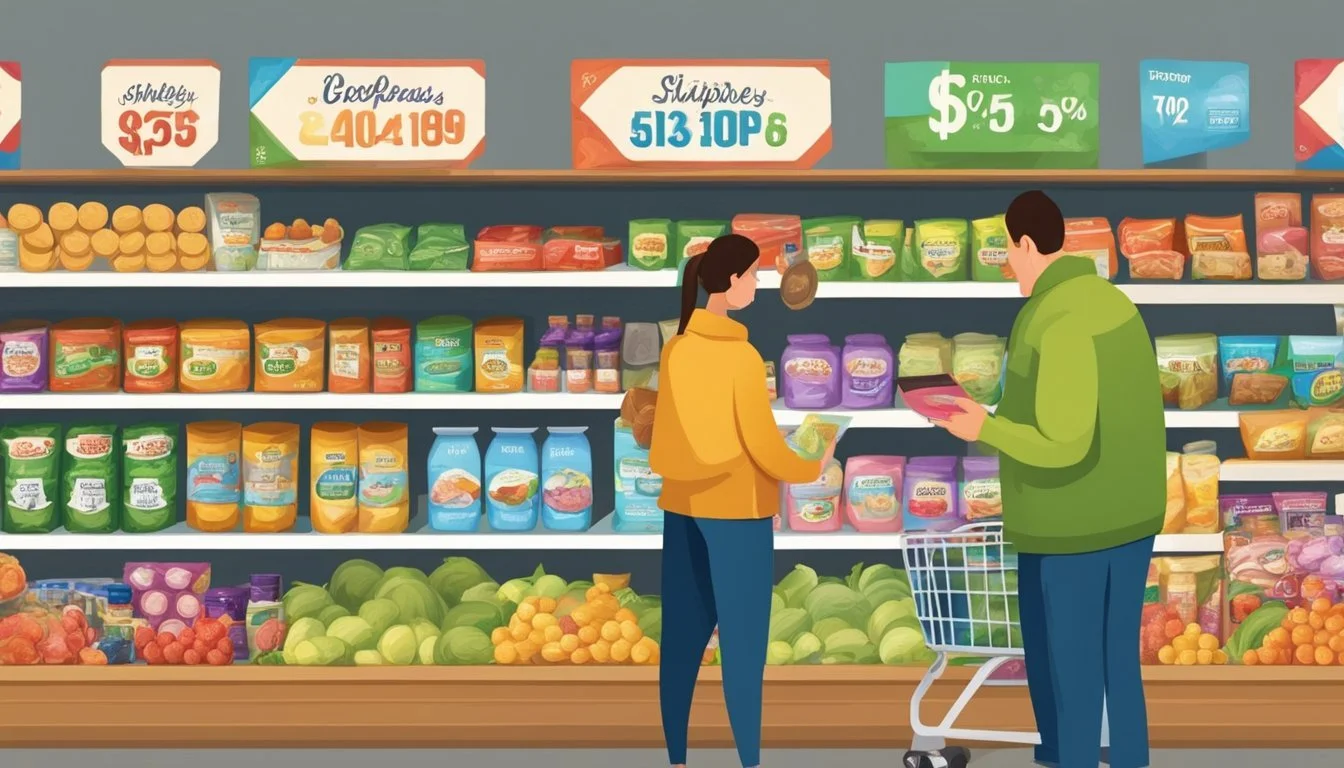Is Cardenas Markets Cheaper Than Piggly Wiggly?
A Price Comparison of Two Regional Grocery Chains
Grocery shopping can be a significant expense for many households, prompting consumers to seek out the most affordable options. Cardenas Markets and Piggly Wiggly are two grocery store chains that cater to different regional markets, each with its own pricing strategies and product offerings.
While direct price comparisons between Cardenas Markets and Piggly Wiggly are limited due to their distinct geographical footprints, both stores are known for offering competitive prices in their respective markets. Cardenas Markets primarily serves Hispanic communities in the southwestern United States, focusing on fresh produce and Latin American specialty items. Piggly Wiggly, on the other hand, has a stronger presence in the southern and midwestern states, providing a wide range of general grocery items.
Both chains prioritize value for their customers, often featuring weekly specials and discounts to attract budget-conscious shoppers. The choice between Cardenas Markets and Piggly Wiggly may ultimately depend on factors such as location, product selection, and individual shopping preferences rather than overall price differences.
Comparing Grocery Store Profiles
Cardenas Markets and Piggly Wiggly have distinct histories, regional presence, and store designs that shape their identities in the supermarket industry. These factors contribute to their unique positions in the grocery landscape.
History and Growth
Piggly Wiggly, founded in 1916 in Memphis, Tennessee, pioneered the self-service grocery concept. This innovation revolutionized grocery shopping, allowing customers to select their own items.
Cardenas Markets, established in 1981, began as a small store in Ontario, California. The company's growth has been driven by catering to Hispanic communities.
Piggly Wiggly expanded rapidly across the United States in its early years. By the 1930s, it had become the country's third-largest grocery chain.
Cardenas Markets has experienced significant growth in recent decades. The company has expanded through acquisitions and new store openings, particularly in areas with large Latino populations.
Store Locations and Regional Reach
Piggly Wiggly operates primarily in the Midwest and Southeast regions of the United States. The chain has a strong presence in rural areas and small towns.
Cardenas Markets focuses on the Southwestern United States. Its stores are concentrated in California, Nevada, and Arizona.
Piggly Wiggly's franchise model has allowed for widespread expansion. Independent operators run many Piggly Wiggly stores, adapting to local market needs.
Cardenas Markets maintains a more centralized approach. The company directly operates its stores, ensuring consistency across locations.
Store Layout and Design
Piggly Wiggly stores often feature a traditional supermarket layout. Aisles are typically arranged in a grid pattern, with produce sections near the entrance.
Cardenas Markets adopts a layout that caters to Hispanic shoppers. Stores prominently display fresh produce, meats, and Latin American products.
Piggly Wiggly stores vary in size, ranging from small neighborhood markets to larger supermarkets. The chain's design often incorporates its iconic pig mascot.
Cardenas Markets stores are generally spacious, with wide aisles and vibrant colors. Many locations include in-store taquerias and bakeries, reflecting the chain's cultural focus.
Product & Service Offerings
Cardenas Markets and Piggly Wiggly offer diverse product ranges and services to cater to their respective customer bases. Both chains focus on providing quality groceries and household essentials, but with distinct approaches to product selection and additional offerings.
Department Overview
Cardenas Markets specializes in Hispanic and international foods, featuring an extensive produce section with exotic fruits and vegetables. Their meat department offers custom cuts and marinated options. The bakery produces fresh tortillas and pan dulce daily. Piggly Wiggly, on the other hand, maintains a more traditional American grocery selection. Its produce department emphasizes local and seasonal items when possible. The deli offers made-to-order sandwiches and prepared meals. Both chains provide full-service meat counters with trained butchers.
Dairy sections in both stores stock a variety of milk, cheese, and yogurt products. Cardenas Markets includes a wider selection of Hispanic dairy items like queso fresco and crema. Piggly Wiggly typically carries more mainstream American brands in its dairy department.
Exclusive Brands and Partnerships
Cardenas Markets has developed its own line of private label products, focusing on authentic Hispanic flavors and ingredients. These include salsas, spices, and traditional Mexican candies. The chain also partners with local vendors to offer regional specialties.
Piggly Wiggly features its iconic "Mr. Pig" store brand across various product categories. This includes canned goods, snacks, and household items. The chain collaborates with regional suppliers to stock location-specific products, enhancing its connection to local communities.
Additional Services
Many Piggly Wiggly locations include in-store pharmacies, providing prescription services and over-the-counter medications. Some stores offer basic health screenings and immunizations. Cardenas Markets generally does not include pharmacy services but often features money transfer facilities and bill payment options.
Both chains have implemented digital coupon programs and loyalty rewards systems. Cardenas Markets provides bilingual customer service to assist Spanish-speaking shoppers. Piggly Wiggly stores frequently offer services like check cashing and lottery ticket sales, catering to their rural and small-town customer base.
Price Comparison and Cost Savings
Cardenas Markets and Piggly Wiggly employ different pricing strategies to attract and retain customers. Both chains aim to provide value, but their approaches vary in terms of regular pricing, discounts, promotions, and operational efficiencies.
Regular Pricing and Discounts
Cardenas Markets focuses on competitive pricing for Hispanic and Latin American products. Their regular prices on staples like rice, beans, and fresh produce are often lower than mainstream supermarkets. Piggly Wiggly, on the other hand, maintains mid-range pricing on most items.
Cardenas offers frequent discounts on meat and seafood, sometimes up to 20% off. Piggly Wiggly provides weekly specials, typically featuring 10-15% discounts on select items.
Both stores have digital coupons available through their apps or websites. Cardenas tends to offer more coupons for ethnic products, while Piggly Wiggly's coupons cover a broader range of national brands.
Special Offers and Promotions
Cardenas Markets runs "Familia Fridays" with extra discounts on family-sized packages. They also have seasonal promotions tied to Hispanic holidays and events.
Piggly Wiggly implements a "Pick 5" program where customers can select five participating items for a discounted bundle price. They also offer loyalty rewards programs in some locations.
Both chains feature loss leaders - deeply discounted items to draw customers in. Cardenas often uses produce as loss leaders, while Piggly Wiggly tends to focus on packaged goods.
Special promotions at Cardenas usually last 3-4 days. Piggly Wiggly's promotions typically run for a full week.
Economies of Scale and its Impact
Cardenas Markets, with over 50 stores, benefits from economies of scale in purchasing power for Hispanic products. This allows them to negotiate better prices with suppliers and pass savings to customers.
Piggly Wiggly operates on a franchise model, with individual store owners. While this limits their overall purchasing power, it allows stores to tailor offerings to local preferences.
Cardenas' centralized distribution system reduces transportation costs. Piggly Wiggly franchisees may face higher logistics expenses, potentially impacting shelf prices.
Both chains work to optimize inventory management. Cardenas uses advanced analytics to predict demand, while Piggly Wiggly relies more on individual store manager expertise.
Shopping Experience and Convenience
Cardenas Markets and Piggly Wiggly offer distinct shopping experiences, each with its own strengths in terms of convenience and customer service. The checkout process, online options, and overall accessibility differ between the two chains.
Checkout Efficiency
Cardenas Markets typically features modern checkout stands with efficient scanning systems. Many locations offer self-checkout options, reducing wait times during peak hours. Piggly Wiggly stores often have fewer checkout lanes but prioritize personalized service. Some Piggly Wiggly locations maintain traditional cash registers, which can slow down the process during busy periods.
Cardenas Markets generally provides a wider variety of payment options, including mobile payments and store cards. Piggly Wiggly accepts standard payment methods but may have more limited digital payment capabilities in some locations.
Online Shopping and Delivery Options
Cardenas Markets has invested heavily in its digital presence. The chain offers a user-friendly website and mobile app for online shopping. Customers can browse products, create shopping lists, and schedule deliveries or in-store pickups.
Piggly Wiggly's online capabilities vary by franchise location. Some stores partner with third-party delivery services, while others may not offer online shopping at all. This inconsistency can make it challenging for customers seeking a uniform digital experience across different Piggly Wiggly locations.
Accessibility and Customer Service
Cardenas Markets focuses on serving Hispanic communities, offering bilingual signage and staff in many locations. The stores are often designed with wide aisles to accommodate shopping carts and provide easy navigation.
Piggly Wiggly stores tend to have a more compact layout, which can be advantageous for quick trips but may feel cramped during busy times. Customer service at Piggly Wiggly is often praised for its friendly, small-town feel, with employees who know regular customers by name.
Both chains strive to maintain clean, well-organized stores. Cardenas Markets typically offers a larger produce section with a focus on Hispanic fruits and vegetables. Piggly Wiggly stores may have a more limited selection but often feature local products that cater to regional tastes.
Customer Engagement and Loyalty Programs
Cardenas Markets and Piggly Wiggly employ various strategies to foster customer loyalty and community engagement. These initiatives aim to enhance the shopping experience and build lasting relationships with their patrons.
Loyalty Programs and Rewards
Cardenas Markets recently partnered with GetUpside to offer personalized cash-back incentives to customers. This program allows shoppers to earn rewards on their purchases, providing additional value beyond everyday low prices. The GetUpside platform has proven successful with other retailers, including Piggly Wiggly.
Piggly Wiggly's loyalty approach varies by location. Some stores offer a cost-plus concept, where members receive products at cost plus a small markup. This unique model has cultivated strong customer loyalty, particularly in southern states.
Both chains frequently run promotions and distribute weekly ads to highlight special deals. These tactics encourage repeat visits and help customers maximize their savings.
Community Involvement and Engagement
Cardenas Markets and Piggly Wiggly recognize the importance of community involvement in building customer relationships. They often participate in local events, sponsor youth sports teams, and support charitable causes.
Piggly Wiggly stores, being largely independently owned, tend to tailor their community engagement efforts to local needs. This localized approach helps strengthen ties with customers in specific neighborhoods.
Cardenas Markets, with its focus on Hispanic communities, often hosts cultural events and supports initiatives that resonate with its target demographic. These efforts go beyond mere transactions, fostering a sense of belonging among shoppers.
Sustainability and Health Options
Cardenas Markets and Piggly Wiggly differ in their approaches to sustainability and health-focused offerings. These differences impact customer choices and overall shopping experiences.
Organic and Health-Focused Selection
Cardenas Markets emphasizes fresh, authentic Hispanic foods. They offer a wide variety of fruits, vegetables, and traditional ingredients catering to health-conscious consumers. Their produce section features many organic options.
Piggly Wiggly provides a more conventional grocery selection. While they stock some organic items, their focus is on traditional grocery products. The chain may have a smaller range of specialty health foods compared to Cardenas Markets.
Both stores offer fresh produce, but Cardenas Markets often has a broader selection of exotic fruits and vegetables popular in Hispanic cuisine.
Sustainability Practices
Cardenas Markets has implemented several sustainability initiatives. They use energy-efficient lighting and refrigeration systems in their stores. The company also works with local suppliers to reduce transportation emissions.
Piggly Wiggly's sustainability efforts vary by location, as many stores are independently owned. Some franchises have adopted eco-friendly practices like offering reusable bags and implementing recycling programs.
Both chains strive to reduce food waste. Cardenas Markets donates unsold food to local charities. Piggly Wiggly stores often partner with food banks for similar initiatives.
Brand Perception and Market Position
Cardenas Markets and Piggly Wiggly occupy distinct positions in the grocery retail landscape. Their brand perceptions and market positions differ significantly, influencing customer choices and competitive strategies.
Customer Perceived Value
Cardenas Markets is known for its focus on Hispanic and Latino communities, offering a wide selection of authentic products and fresh produce. Customers perceive Cardenas as a specialty grocer providing cultural foods and ingredients that may be harder to find elsewhere. This niche positioning gives Cardenas a unique value proposition in its target markets.
Piggly Wiggly, on the other hand, has a long-standing reputation as a neighborhood grocer. Its brand is associated with convenience and local charm. Customers often view Piggly Wiggly as a familiar, trustworthy option for everyday shopping needs. The store's customization to local preferences enhances its perceived value among regular shoppers.
Competitors and Market Trends
In the competitive grocery landscape, both Cardenas Markets and Piggly Wiggly face challenges from larger chains like Walmart, Kroger, and Safeway. These giants leverage economies of scale to offer lower prices and wider selections. However, Cardenas and Piggly Wiggly carve out their niches through specialization and community focus.
Cardenas competes with other Hispanic-focused grocers and mainstream stores expanding their ethnic food sections. Piggly Wiggly contends with regional chains and independent grocers in smaller markets. Both face pressure from discount chains like Aldi and wholesale clubs like Costco.
Market trends favor personalized shopping experiences and local sourcing. This benefits Cardenas and Piggly Wiggly, as they can adapt quickly to community preferences. However, the rise of online grocery shopping and delivery services poses new challenges for these traditional brick-and-mortar retailers.









